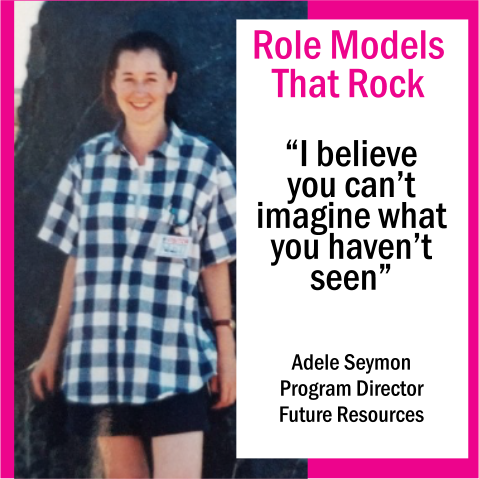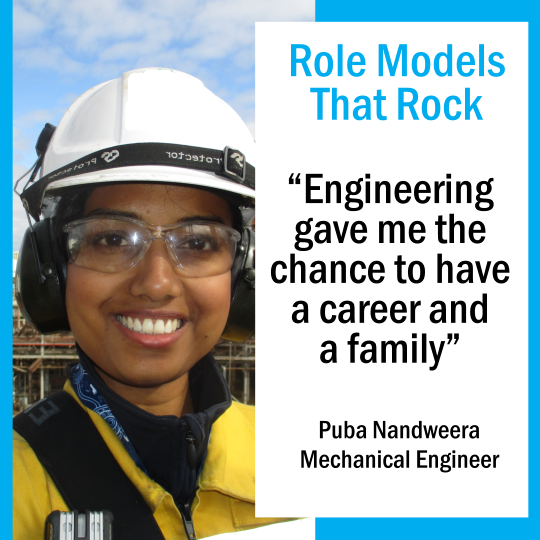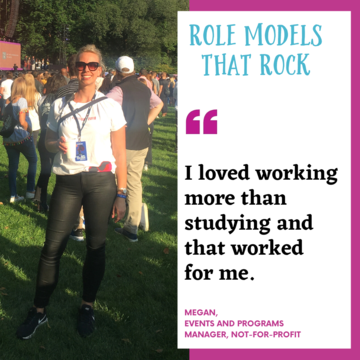 Adele Seymon
Adele Seymon
Program Director
Future Resources
Becoming a geologist is a fascinating way to combine a career in STEM with a focus on climate change and sustainability. But what exactly does a geologist do? Adele Seymon shares her inspiring story.
What does your role involve?
In a nutshell, my role is to improve how the minerals industry explores for and uses mineral resources. I am a kind of link between university researchers and the mining industry. I bring together people interested in research and I lead conversations about how these projects help to improve the mining industry’s ability to provide the minerals and energy we need for a functioning society. The aim is to do this in a respectful way, that is safer for the communities we work in, and for the environment. I want to see a cleaner planet – this can only come through using clean energy, which requires more efficient extraction of metals. Recycling plays a role too!
What are some of the things you do in your role?
Lots of talking to people all around the world and lots of research into new methods and technologies. At the moment I’m investigating future energies and emissions – to be able to work with the minerals industry to understand what needs to happen to create an industry that can operate in a carbon-constrained world. This is fun! Some say I herd cats – as I try to bring people from many groups together to effectively collaborate. I say it’s harder than that… I herd butterflies!! In our current world, keeping people focused is challenging!
Did you know what you wanted to do when you were at school?
Yes, ever since I was in Year 9, I knew I wanted to be a geologist. Two reasons – firstly some geography assignments on volcanology and on mineral resources fascinated me. And secondly, I had a female physics teacher who had been trained as a geologist. Her husband was also a geology researcher. This teacher took me out to the university to see what her husband did at work. This was inspiring – I really believe that you can’t imagine what you haven’t seen.
How did you get started?
I did a science degree at Monash University with a major in geology. Then an industry-sponsored Honours project at a large nickel mine in WA. This was great exposure to the world of mining. When I finished my degree, I was employed by an exploration company in WA to explore for nickel.
What do you love most about what you do?
Travel, seeing natural landscapes (on field trips) and connecting with a global community who are all interested in improving what we do and preserving the environments we work in. I’ve loved meeting new communities in West Africa or NE South America. I love to be able to work with my communities to develop projects that provide new training opportunities to young geoscientists!
What are you most proud of in your career so far?
I’m proud of the variety of experience I’ve gained. I’ve had the opportunity to have roles that have offered so many different perspectives on geoscience; and now more broadly – a view over the whole mining value chain. I love learning about how the industry works and what should be considered, from those early moments of exploration, all the way through to mine closure. Geoscience plays a huge role in most aspects of resource management. Also, everything is more connected than we think… the butterfly effect!
Who helped you get to where you are today?
So many people – my husband, my peers and colleagues and specifically some wonderful mentors (often informal mentors) who helped me envisage a varied career path that has spanned industry, government and not for profit in the mining sector.
What was your biggest failure along the way?
That’s a good question. Two spring to mind… the first was thinking I would know enough to become an exploration geologist in my first year out of university. I remember relying on my drillers to tell me what sort of rock type I was looking at in those first few months out bush! Secondly, thinking during one of the mining industry downturns that the finance/broking sector would be an interesting career path… for those who know me, you would wonder what I was thinking (maths not being a forte). Thank goodness the Victorian Geological Survey had a role for me to move to from there!
Do you have any advice for girls who are thinking about a career in your industry?
Do what you love; don’t compromise too much, always make sure your values are aligned with your workplaces. Embrace uncertainty. And finally, one of the greatest learnings I have made is that it is the ability to think that is important. Geoscientists think about and visualise data in pretty unique ways; this ability can be applied in many roles, not just geoscience.
What are your thoughts about the future of work in your industry?
Our industry is evolving fast. Fundamental science will always be important but add to that the ability to work with data in different ways, with machine-supported decision making.
#empowergirl
#seewhoyoucanbe
#rolemodels
#geoscientistcareers
#femalegeologist
#inspirationalwomen




